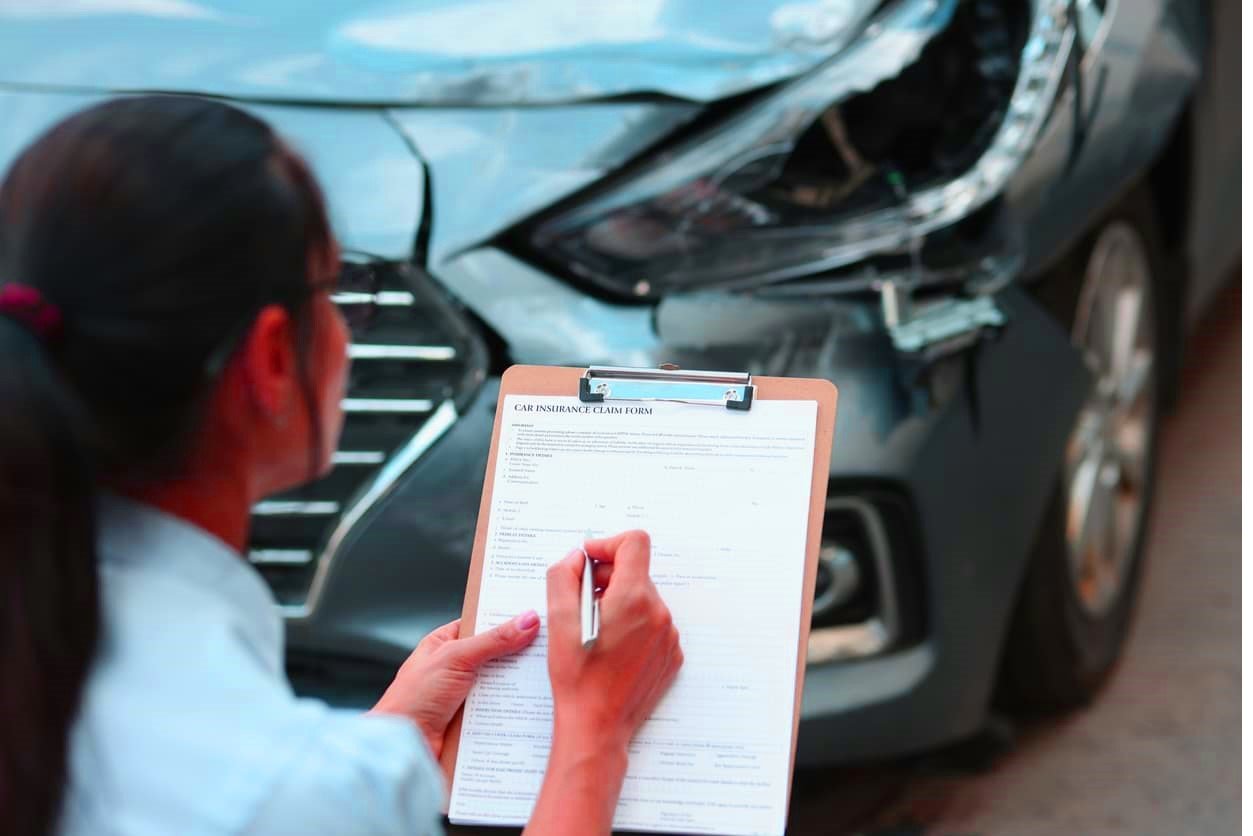What Not to Tell Your Insurance Company After an Accident?

Suppose you were injured in a car accident. In that case, you should probably contact your own insurance company as soon as possible to make sure that they will pay for your medical care, vehicle repairs, and any other costs associated with the accident.
However, despite the fact that you are their customer and have paid your premiums, you cannot always have faith that your insurer will treat you in a just manner. If you make a mistake in what you say, you could end up losing benefits and jeopardizing your ability to seek compensation from other people.
Following is a primer on how accident insurance works, as well as advice from car accident lawyers on what you should not say to your insurance company (or the insurance company of anyone else) after being involved in an accident.
Contents
- 1 Insurance That May Cover You in an Accident: Insurance Company
- 1.1 Auto Insurance
- 1.2 Health Insurance
- 1.3 Workers’ Compensation Insurance
- 1.4 Long-Term Disability Insurance
- 1.5 Required Contact With Insurance Companies
- 1.6 Optional Contact With Insurance Companies
- 1.7 What Insurance Companies Want out of a Conversation With You
- 1.8 What Not to Say to an Insurer to Avoid Making a Costly Mistake
Insurance That May Cover You in an Accident: Insurance Company
According to the National Highway Traffic Safety Administration (NHTSA), there are approximately five million to seven million traffic accidents in the United States each year. Insurance plays a role in the aftermath of virtually every single one of these collisions. The most common types of insurance are auto insurance and health insurance, but other kinds of insurance might also come into play after an accident.
Auto Insurance
Many of the costs associated with a car accident can be covered by auto insurance. For the most part, if you want the insurance company to pay for these costs, you are going to have to file a claim under your auto insurance policy.
Certain types of auto insurance must be carried out at all times and are discussed in the aftermath of most accidents. For instance, drivers in every state are required to carry auto insurance that covers their liability in the event that they cause injury or death to someone else in the event of an accident.
In some states, drivers are required to carry what is known as “no-fault” or Personal Injury Protection (PIP) insurance, which covers their injuries and financial losses in the event of a car accident. Other states require only liability insurance.
Other types of automobile coverage are not required but are extremely widespread. For example, the vast majority of motorists choose to carry collision coverage as their primary auto insurance, which pays for repairs to their vehicle in the event of a collision. A good number of people also purchase insurance to cover their injuries and losses in the event that they are involved in an accident with an uninsured or underinsured driver who is unable to pay their costs.
Health Insurance
Many people in the United States have health insurance, either through private plans provided by their employers or through public programs like Medicare. If you are injured in an accident and taken to the emergency room or an urgent care clinic, there is a good chance that the doctor will first try to collect payment from your health insurance company.
Many times, a medical provider will bill your insurance company directly for your treatment, and you won’t learn about the charges until several weeks or months after the fact. However, there are times when you might need to file a claim with your health insurance provider so that they can cover the costs.
Workers’ Compensation Insurance

Suppose you are injured in an accident while driving or riding in a vehicle as part of your job. In that case, workers’ compensation insurance may cover the cost of your medical care as well as some of the financial losses you sustain as a result of the accident.
The majority of employers in the United States are required to purchase a workers’ compensation policy in order to shield their employees from the associated costs. Getting workers’ compensation benefits may require filing a claim with your employer or the workers’ compensation insurance company, or it may require you to fill out paperwork for your medical provider to submit on your behalf. This will depend on the state in which you live.
Read More: How Your Insurance Is Affected by a Workplace Accident
Long-Term Disability Insurance
After an accident, if you suffer a disabling injury that prevents you from going back to work, you may be eligible for financial assistance through a long-term disability insurance policy, also known as LTD insurance. Some employers offer their workers the benefit of long-term disability insurance (LTD).
An individual can also buy a personal long-term disability insurance plan. Suppose you want the insurer to compensate you for your losses and expenses that are covered by your long-term disability policy. In that case, you will typically need to file a claim under the policy.
Required Contact With Insurance Companies
In order to collect benefits under many insurance policies, you will need to speak with an insurance company about your accident (either directly or through your attorney). This is typically the case with insurance that you have voluntarily purchased (like your auto or health insurance, for example), as well as workers’ compensation coverage that your employer financially supports.
For instance, you might be required to:
Make sure to file a claim with your insurance provider, requesting that they cover the costs associated with your accident;
Talk about the accident, your injuries, and the losses you incurred with an adjuster from your insurance company;
You should provide your insurer with certain documentation, such as medical records, regarding the injuries you sustained as a result of the accident or repair estimates from a garage.
However, the fact that you are required to have contact with these insurance companies does not mean that you are obligated to provide them with every piece of information that they request.
Your insurance company may, in certain circumstances, even try to take advantage of the fact that you are required to speak to them in order to ask you questions that you are not required to answer.
Optional Contact With Insurance Companies
Even though you aren’t a customer of theirs, it’s possible that certain insurance companies that have a financial interest in your accident would like to communicate with you directly. It is not uncommon for insurers to take this course of action when your accident was caused by the carelessness of another person, leaving them liable for your losses or the losses of another person.
For instance, a representative of the insurance company that covers someone else may contact you in order to request the following:
That you provide a recorded statement to their investigator; That you send them documentation about your injuries or losses; That you allow them to inspect your damaged vehicle or speak with third parties you hired; That you send them documentation about your injuries or losses; That you send them documentation about your injuries or losses.
In most cases, you are not under any obligation, either legal or contractual, to communicate with or share information with these insurance companies. It is in your best interest to delegate all initial communications with these insurers to an experienced attorney who will represent your interests. If you must speak directly with these insurers, you should do so only with the guidance and support of your attorney.
What Insurance Companies Want out of a Conversation With You
The desire to speak with you on the part of an insurance company is typically driven by one of two distinct, albeit connected, factors:
In order to satisfy themselves that the terms of the insurance policy obligate them to fulfill their contractual obligation to pay for your accident-related expenses, as well as to verify the information that supports your claim or potential claim, and to discover any facts and arguments they can use to reduce the amount of their financial obligation to you or to completely avoid paying for your losses.
You, the person claiming compensation under an insurance policy, may find yourself in a difficult position as a result of these motivations. On the one hand, you want the insurance company to be able to verify that you have a legitimate claim, and you are aware that it is in your best interest to provide them with the information that they require in order to do so.
On the other hand, you don’t want to shoot yourself in the foot by providing the other party with an excuse not to pay for your accident by giving them too much information or the wrong kind of information. This would be the equivalent of shooting yourself in the foot.
What Not to Say to an Insurer to Avoid Making a Costly Mistake
Taking out an insurance policy after an accident is analogous to walking a tightrope, to put it another way. Your objective is to provide the insurance company with only as much information as it requires and has the legal right to request, but not one iota more than that.
If it is at all possible, you should seek the counsel of an experienced attorney prior to engaging in conversation with a representative of an insurance company. We will go over how much counsel can help you strike the right balance in the following section.
If, on the other hand, you find yourself speaking with an insurance adjuster over the phone or in person before you have a lawyer on your side, here are some things you should not say:
Do not consent to having your conversation recorded before first consulting either your company’s policy or a legal professional to determine whether or not doing so is required. Do not answer questions or disclose information that the adjuster has not specifically requested, and do not disclose information that the insurer has not specifically requested.
Do not consent to the release of your medical records to the insurer before consulting with an attorney about what information you are required to reveal. Do not make assumptions or guesses about things that you do not know for sure. Do not offer your opinion regarding who was to blame for the incident. Do not blame yourself in any way, not even in a small way. For example, do not say that you are sorry that you did not come to a stop sooner or that you should have seen the other car coming.
Do not try to downplay the seriousness of your injury or the difficulty of your recovery by claiming that you are feeling fine or that you are recovering quickly. Always insist on using your own words, and do not accept the adjuster’s version or restatement of what happened to you or how your injuries occurred. Do not tell lies or exaggerate the extent of your injuries when discussing the accident. You should not agree to settle your claim or to the idea that someone other than the insurer should probably pay for part of it.
Keep in mind that even if your conversation with the insurance adjuster seems to be friendly and supportive, this could actually be a dangerous minefield full of loaded questions and manipulative tactics. To avoid having your rights violated, you need to approach every interaction with caution.
Read More: Signing a Medical Release for the Insurance Adjuster?


